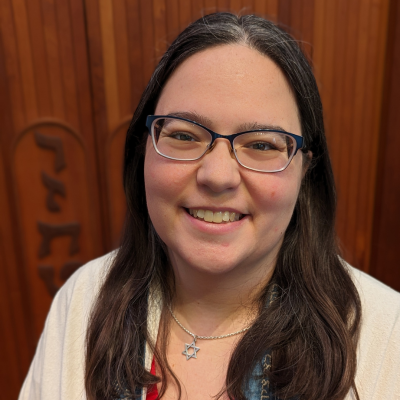“I’ve discovered that in order to make big changes in the world, we have to begin at home — within ourselves” ― The Baby-Sitters Club #57: Dawn Saves the Planet
When I was nine years old and my family had recently moved across town, I fell in love with the public library by our new house. It was an older library, and for that reason had full collections (in numerical order!) of Nancy Drew, The Hardy Boys, and my favorite: The Baby-Sitters Club. While I had always been a reader, that year I read hundreds of books. I believe it was a transformational year because our move was prompted by family illness, and I found comfort in the stories that had happy endings. I also found comfort in exploring the world through another’s viewpoint, the gift that reading gives to us.
The stories in Torah do not always end happily, but each and every parshah has a gift to give to us. Some years one verse speaks to us, other years another. Sometimes it is the interpretation of the text that ignites our passion ― the viewpoint of another reader.
Rabbi Ovadia ben Jacob Sforno’s commentary, written in the 16th century, breathes life into our parshah this week. He wrote regarding the lighting of the menorah in the Mishkan (tabernacle):
Only when both the lamps on the right, symbolizing those who concern themselves with higher things, and the lamps on the left, symbolizing those who take care of matters in this world, are directed to the central light, the essence of the lampstand, do all seven lamps give light.
It is only when both groups are participating, are acting, that the light is fully lit — representing the importance of all people engaging with our world. It is not enough to sit in our ivory towers, studying the law. We must also be active in living the law.
Find more commentaries on Parshat Beha’alotecha.
In Judaism, fire is not only a tool, but is representative of something much larger — communication and learning. We built bonfires to notify our neighbors of news, and God uses fire that burns and does not consume when speaking to Moses. The Chanukah menorah is not meant to give off light for reading but is a symbol of our enduring freedom. The menorah in the Mishkan is a symbol of all of us coming together across lines of difference.
Freedom comes in many guises, including the opportunity to see the world through another’s eyes. When the freedom of choosing what to read is taken away, we all lose. According to the American Library Association’s (ALA) Office for Intellectual Freedom, 1,269 demands to censor library books and resources were recorded in 2022, the highest number of attempted book bans since ALA began compiling data about censorship in libraries more than 20 years ago. The unparalleled number of reported book challenges in 2022 nearly doubles the 729 book challenges reported in 2021. This year is looking no better as we see bills being proposed, and some passed, at all levels of government to restrict access to books in public schools and public libraries.
As Jews, we have seen throughout our history the impact book banning (and book burning) has on a society. We think not only of the book burning in 1930s Germany but also of the banning of Torah reading by King Antiocus in the 2nd century BCE. Book banning, then and now, is about limiting access to knowledge — and by doing so, attempting to erase identities, ideas, and history from existence. Limiting access to knowledge leads to a society that does not think, which is in direct conflict with the importance of learning and action in Judaism.
Find more commentaries on Freedom of Speech.
I recently led a book discussion on All Boys Aren’t Blue: A Memoir-Manifesto by George M. Johnson (the second most challenged book of 2022). A powerful read, Johnson wrote the book because there was no book for him to turn to as a child/teenager/young-adult that spoke to his lived experience. Every time a book is banned, the opportunity for a person to find themselves is destroyed. As my teacher, Rabbi Judith Abrams z”l, taught, each of us needs to see ourselves in the text. I believe her words extend beyond seeing ourselves in Torah to each person being able to see their story in the media they consume.
The lights of the menorah in the Mishkan and in the Temple led to the ner tamid (eternal light) in our sanctuaries, and to our understanding that each one of us is a light, too. The light of the menorah was a constant reminder of God’s presence. Each one of us has within us a piece of this light, our souls, which make us human. We recognize and celebrate this light when we bring our whole selves, as Sforno explained, to the table and stand up to say we will not be silent.
Rabbi Simone Schicker (she/her) serves Temple B’nai Israel in Kalamazoo, Michigan. When not working, you can find her reading all the books or hanging out at the independent bookstore in town. She was ordained from Hebrew Union College ― Jewish Institute of Religion in Cincinnati, Ohio in 2018.

